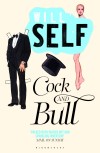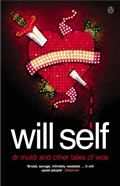Synopsis:
This black comedy is divided into two parts. In the first a woman grows a penis and rapes her husband. In the second a man grows a vagina behind his knee and is then seduced by his doctor.
Cock And Bull was first published in 1992.
Cock And Bull Reviews:








